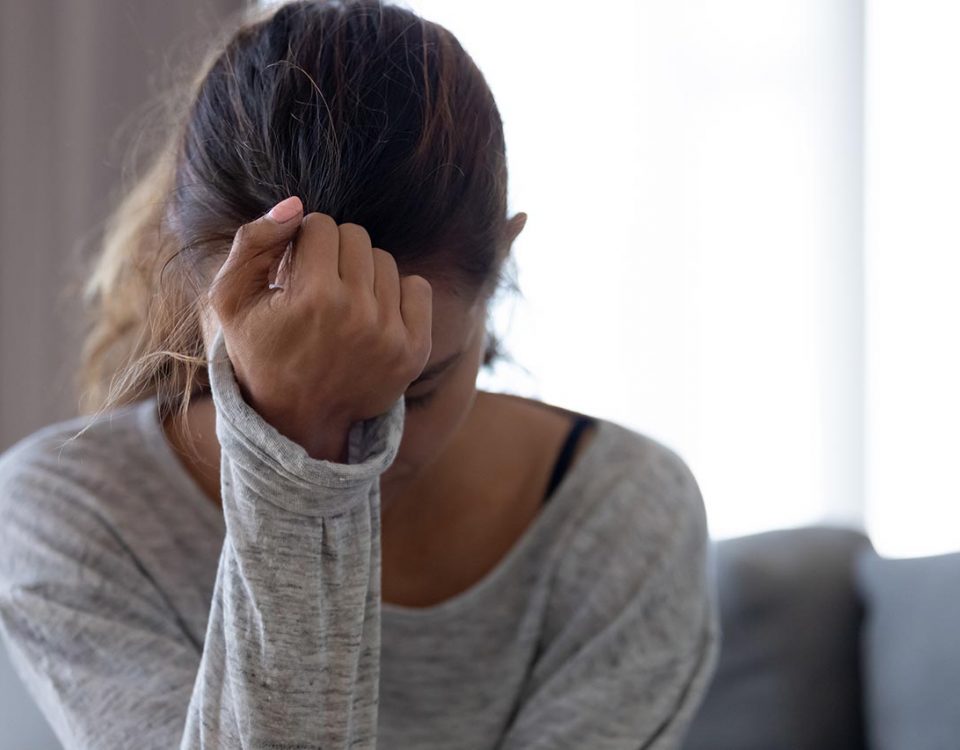


Axis I Disorders: What Are They?
July 7, 2023

Improving Mental Health in Summer
August 8, 2023The Troubling Link Between Domestic Violence and Mental Health


Domestic abuse casts a heavy shadow on the lives of countless people all around the world. Victims are subjected to physical, emotional, and psychological damage behind closed doors, where vulnerability and terror interweave, leaving long-lasting scars on their well-being. However, the delicate link between domestic abuse and mental health is frequently overlooked. This uncomfortable connection indicates a distressing cycle in which the effects of abuse manifest in survivors' psychological health, feeding a cycle that is both crippling and in urgent need of intervention. Banyan Mental Health examines the upsetting truths of domestic abuse and delves into the significant effects it has on victims' mental health, illuminating the critical need for all-encompassing support, comprehension, and change.
How Does Domestic Violence Affect Mental Health?
Domestic abuse causes severe wounds that go far beyond the physical and have an ongoing effect on the survivors' mental health. Domestic abuse victims may have a variety of psychological effects because of their trauma, which can result in a complicated web of emotional anguish and mental health issues.
Anxiety disorders can be brought on by the ongoing stress and terror that come with living in a violent environment. The constant cycle of preparing for, experiencing, and recovering from abuse induces a state of hypervigilance and increased awareness that makes it challenging for survivors to unwind and feel secure even after leaving the abusive environment. Generalized anxiety disorder (GAD), panic episodes, and post-traumatic stress disorder (PTSD) can all result from a continuous fear of possible damage.
Furthermore, a victim of domestic abuse frequently suffers from diminished self-worth and self-esteem. Gaslighting, manipulation, and belittling are just a few of the strategies that abusers use to dominate and control their victims. Consequently, survivors could experience sadness, feelings of worthlessness, and a distorted view of themselves. The psychological effects of these experiences can be severe, resulting in social retreat, suicidal thoughts, and a lack of interest in once-enjoyed activities. At this point, mental health treatment could be necessary.
The trauma of domestic abuse can also make it difficult for the survivor to establish and sustain healthy relationships. In abusive relationships, trust—a crucial element of human connections—is severely eroded. Survivors may have trouble forming appropriate boundaries, struggle with intimacy, and fear their vulnerability. This may raise the likelihood of developing personality disorders or loneliness, as well as issues with co-dependency.
Lastly, the effects of domestic violence go beyond the direct victims. Children who witness or are exposed to domestic abuse are also at an elevated risk of developing serious mental health issues. Experiencing fear, instability, and violence as a child can have long-term effects in the form of anxiety, depression, behavioral issues, and difficulty establishing healthy relationships.
The Domestic Violence Cycle of Abuse
Many violent relationships follow a frightening pattern known as the Cycle of Abuse. It includes several recurring stages that ensnare victims in a never-ending cycle of violence, control, and deceit.
These stages include:
- Tension-building phase: The cycle typically begins with a phase of escalating tension. The abuser may become more agitated, demanding, and judgmental of the victim during this stage. Little disputes and arguments occur more often and give the impression that everyone is treading water. To avert an outburst, the victim would try to placate the abuser, which would only serve to increase their already high levels of fear and anxiety.
- Acute abusive incident: The actual violence or abuse occurs at this phase. Abuse of any kind, whether physical, emotional, or sexual, can occur. The abuser's rage and aggressiveness are directed towards the victim, who is traumatized and in distress on a physical or emotional level.
- Honeymoon or reconciliation phase: The cycle moves into a time of comparatively quiet and reconciliation after the intense abusive occurrence. The abuser could confess, apologize, and make a vow to behave differently. The victim is typically given the impression that the abuse was an isolated episode and that the abuser cares during this phase, which often involves gestures of kindness, affection, and apologies. The victim could decide to remain with or go back to the abuser out of relief and hope for a better future.
- Repeat of the cycle: Unfortunately, the honeymoon period usually ends quickly, and the cycle keeps going. Once more, the tension begins to rise, eventually resulting in another eruptive bout of abuse. The vicious cycle continues until the victim leaves the abusive partnership or gets assistance and support.
It is a fact that in countless situations, not walking away or properly addressing the abuse can continue to escalate into a more drastic situation. This makes it integral to utilize willpower and take the necessary steps to leave. This could also require additional outside support, as the mental dynamics of the victim may be severely impacted and morphed by the abuse they have suffered. This highlights the importance of addressing the correlation between mental health and domestic violence before it is too late.
Addressing the Mental Consequences of Domestic Violence
Addressing the correlations between domestic violence and mental health is a crucial step in overcoming it. It requires a thorough and all-encompassing strategy that emphasizes survivors' immediate needs as well as long-term healing. Primarily, immediate safety precautions must be taken. It is possible to guarantee that survivors have a secure place to flee the abuse and obtain prompt support by setting up easily accessible and private helplines, shelters, and emergency lodgings. It can also help with early intervention and the safety of survivors by establishing guidelines for how law enforcement and medical personnel should recognize and react to indicators of domestic abuse.
Additionally, providing survivors with trauma-informed counseling and therapy is essential for addressing the mental health issues they encounter. Trauma-focused therapy can assist survivors in processing their experiences, controlling anxiety and PTSD symptoms, and regaining their sense of empowerment and self-worth. A sense of community and understanding can be created by group therapy and support systems, enabling survivors to connect with people who have experienced similar things. Luckily, our facilities for mental health offer PTSD treatment that can aid patients in learning how to manage the difficult emotions and experiences that they struggle with. Many of the therapy programs offered at our rehab can also be adjusted to involve the specific trauma that a patient has lived through.
Call Banyan Treatment Centers at 888-280-4763 to learn more about what our residential mental health facilities can do for you.
Related Reading







